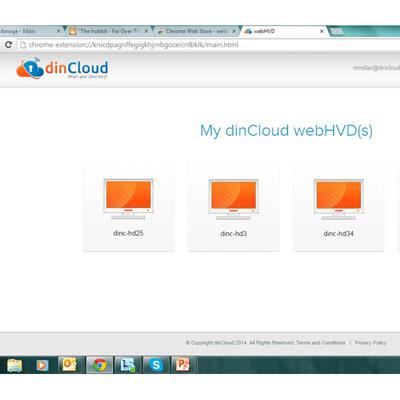Wheeling And Dealing: 5 Recent Acquisitions Disrupting The Cloud Market

Deal Week
Last week saw a flurry of investment and acquisition deals involving companies operating in the cloud.
Those included two private equity giants looking to claim a stake in the rapidly emerging business process automation and workflow management market.
There also was a significant acquisition that unified two unified communications providers, creating a powerhouse in the business communications and collaboration market.
A business process outsourcer saw the advantage of being able to offer customers outsourced IT resources as well, picking up a cloud infrastructure provider with a specialty in delivering virtual desktops.
And a virtual desktop services provider purchased the software developer whose technology it delivered to the MSP market.

Unifying Unified Communications
Videoconferencing market leader LogMeIn revealed plans to acquire cloud-based UC provider Jive Communications for $342 million, plus up to $15 million in incentives. The unification of the two companies creates a powerhouse in the unified communications and collaboration market.
Boston-based LogMeIn said that the purchase will add Jive's portfolio of cloud-based phone systems and UC solutions to its own existing suite of collaboration and video products. These include GoToMeeting, GoToWebinar and OpenVoice. The deal also will bring Jive's substantial channel expertise to the table.

Private Equity Strikes Workflow Management
Boston-based private equity firm Thomas H. Lee Partners reached a deal to purchase Alfresco Software, a developer of open-source enterprise content and business process management applications.
Alfresco CMO Sydney Sloan told CRN the deal makes sense from a strategic perspective, as it will infuse the company with cash to scale in a competitive market that's in transition.
With funding from the private equity firm, Alfresco will be in a stronger position to disrupt that business process automation market faster than it already is doing, she said.

And Another Private Equity-Workflow Management Deal
Private equity giant Thoma Bravo said it had agreed to purchase a majority stake in Nintex, a workflow automation software vendor that's one of the fastest-growing Microsoft technology partners.
The Chicago-based investment firm is asserting itself as a significant player in the IT sector with a string of high-profile acquisitions in recent years, most recently Barracuda Networks. The Nintex transaction should complete by March, though further terms of the deal were not disclosed.
Nintex generated more than $100 million in revenue last year. With the latest funding from a major Software-as-a-Service investor, the company will look to drive organic growth while evaluating acquisitions, Kristin Treat, senior communications executive at Nintex, told CRN.

Outsource Everything
Premier BPO, a global business process outsourcing company, said it had completed an acquisition of dinCloud, a cloud platform developer that's focused on the virtual desktop and cloud infrastructure market.
As part of the deal, which closed in January for an undisclosed price, Premier BPO's founder and CEO for nearly 15 years, Mark Briggs, also becomes CEO of dinCloud, which will remain an independent brand.
The cloud platform provider based in Los Angeles has focused in recent years on bringing to market high-performance VDI and cloud infrastructure services through a rapidly growing channel.

Services Provider Scoops Up Software Development Partner
CloudJumper, based in Raleigh, N.C., closed a deal earlier this month to fully acquire IndependenceIT -- a rare acquisition of a software developer by a services partner.
The application and desktop delivery provider was once a high-profile Citrix partner, but switched to IndependenceIT’s Desktop-as-a-Service platform a few years back to differentiate its offering. It quickly became IndependenceIT's largest partner -- so important to the go-to-market efforts, that IndependenceIT exited the services business entirely in 2015, ultimately selling CloudJumper that business unit. The companies became so tied at the hip that ultimately it just made sense to become one entity.